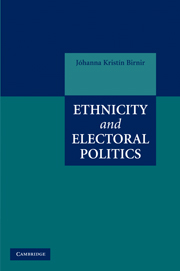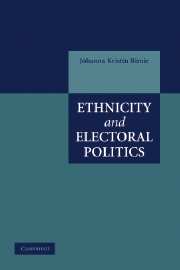Alternatives in Mobilization
What determines which identity cleavage, ethnicity or religion, is mobilized in political contestation, be it peaceful or violent? In contrast to common predictions that the greatest contention occurs where identities are fully segmented, most identity conflicts in the world are between ethnic groups that share religion. Alternatives in Mobilization builds on the literature about political demography to address this seeming contradiction. The book proposes that variation in relative group size and intersection of cleavages help explain conundrums in the mobilization of identity, across transgressive and contained political settings. This theory is tested cross-nationally on identity mobilization in civil war and across violent conflict in Pakistan, Uganda, Nepal and Turkey, and peaceful electoral politics in Indonesia. This book helps illustrate a more accurate and improved picture of the ethnic and religious tapestry of the world and addresses an increasing need for a better understanding of how religion contributes to conflict.
- Provides a multi-method approach to explain why and how a demographic context creates opportunities for mobilization of particular identities
- Uses real world examples and detailed case narratives to explore conflict and mobilization cross-nationally
- Fills a gap in the theoretical literature on demographics, identity, conflict and electoral politics
Product details
May 2022Adobe eBook Reader
9781108331135
0 pages
This ISBN is for an eBook version which is distributed on our behalf by a third party.
Table of Contents
- 1. Introduction
- 2. Demography as an Explanatory Variable
- 3 The Theory: Alternatives in Mobilization
- 4. Testing the Challenger's Winning Coalition Hypothesis on Mobilization of Religion in Civil War
- 5. The Internal Validity of the Challenger's Winning Coalition Hypothesis
- 6. The Challenger's Winning Coalition in Indonesia's electoral politics
- 7. Conclusion.








